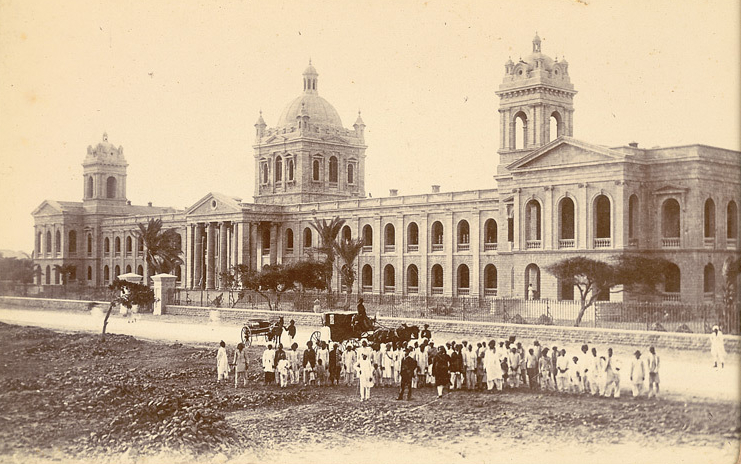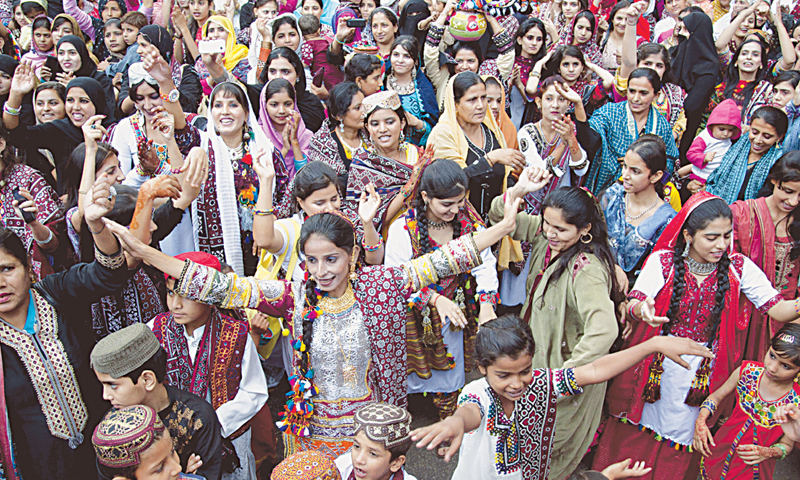Islamabad is the capital city of Pakistan located within the Islamabad Capital Territory. It has a population of 2 million and together with its neighbouring twin city of Rawalpindi, the greater Islamabad-Rawalpindi metropolitan area is the third largest in Pakistan with a population of over 4.5 million inhabitants Islamabad is located in the Pothohar Plateau in the northeastern part of the country, within the Islamabad Capital Territory. The region has historically been a part of the crossroads of Punjab and Khyber Pakhtunkhwa with the Margalla Pass acting as the gateway between the two regions. The city was built during the 1960s to replace Karachi as Pakistan's capital. Islamabad is a well-organised international city divided into several different sectors and zones. It is regarded as the most developed city in Pakistan and is ranked as a Gamma+ world city.
In 2015, Islamabad was ranked as the second most beautiful capital in the World The city is home to the Faisal Mosque,
the largest mosque in South Asia and the fourth largest mosque in the world. Islamabad has one of the highest
literacy rates in Pakistan. There are 16 recognized universities in Islamabad, including Air University
(Pakistan Air Force), Quaid-i-Azam University and the National University of Sciences and Technology.
Allama Iqbal Open University in Islamabad is one of the world's largest universities by enrollment.
History
The Late Palaeolithic and Mesolithic sites found by the Karachi University team on the Mulri Hills, in front of Karachi University Campus, constitute one of the most important archaeological discoveries made in Sindh during the last fifty years. The last hunter-gatherers, who left abundant traces of their passage, repeatedly inhabited the Hills. Some twenty different locations of flint tools were discovered during the surface surveys.

D. J. Science College in the 19th century
Karachi was known to the ancient Greeks by many names: Krokola, the place where Alexander the Great camped to prepare a fleet for Babylonia after his campaign in the Indus Valley; Morontobara (probably Manora island near Karachi harbour), from whence Alexander's admiral Nearchus set sail; and Barbarikon, a port of the Bactrian kingdom. It was later known to the Arabs as Debal from where Muhammad bin Qasim led his conquering force into South Asia in AD 712. Karachi was reputedly founded as "Kolachi" by Baloch tribes from Balochistan and Makran, who established a small fishing community in the area.Descendants of the original community still live in the area on the small island of Abdullah Goth, which is located near the Karachi Port. The original name "Kolachi" survives in the name of a well-known Karachi locality named Mai Kolachi in Balochi.
Culuture
Karachi is home to some of Pakistan's important cultural institutions. The National Academy of Performing Arts, located in the newly renovated Hindu Gymkhana, offers a two-year diploma course in performing arts that includes classical music and contemporary theatre. The All Pakistan Music Conference, linked to the 45-year-old similar institution in Lahore, has been holding its annual music festival since its inception in 2004. The National Arts Council (Koocha-e-Saqafat) has musical performances and mushaira. The Kara Film Festival annually showcases independent Pakistani and international films and documentaries. Karachi is home to theatre, music and dance performance groups, such as Thespianz Theater, a professional youth-based, non-profit performing arts group, which works on theatre and arts activities in Pakistan.[137][138] Karachi has museums that present exhibitions on a regular basis, including the Mohatta Palace and the National Museum of Pakistan. Karachi Expo Centre hosts regional and international exhibitions

Rawat Fort, built by the Gakhars in the 16th century
Saidpur village is supposedly named after Said Khan, the son of Sultan Sarang Khan. The 500-year-old village was converted into the a place of Hindu worship by a Mughal commander, Raja Man Singh. He constructed a number of small ponds: Rama kunda, Sita kunda, Lakshaman kunda, and Hanuman kunda. The region is home to many Hindu temples that are preserved, showing the history of Hindu civilisation and architecture in the region.. The shrine of Sufi mystic Pir Meher Ali Shah is located at Golra Sharif, which has a rich cultural heritage of the pre-Islamic period. Archaeological remains of the Buddhist era can also still be found in the region. The shrine of Bari Imam was built by Mughal Emperor Aurangzeb. Thousands of devotees from across Pakistan attend the annual Urs of Bari Imam. The event is one of the largest religious gatherings in Islamabad. In 2004, the Urs was attended by more than 1.2 million people. The Lok Virsa Museum in Islamabad preserves a wide variety of expressions of folk and traditional cultural legacy of Pakistan. It is located near the Shakarparian hills and boasts a large display of embroidered costumes, jewellery, musical instruments, woodwork, utensils and folkloristic objects from the region and other parts of Pakistan.
Education
Education in Karachi is divided into five levels primary (grades one through five); middle (grades six through eight); high (grades nine and ten, leading to the Secondary School Certificate); intermediate

Sir Syed University of Engineering and Technology.
(grades eleven and twelve, leading to a Higher Secondary School Certificate); and university programs leading to graduate and advanced degrees.Due to a growing population traffic problems and pollution are major challenges for Karachi. The level of air pollution in Karachi is significantly higher than World Health Organization standards. Lyari Expressway is a highway under construction along the Lyari River in Karachi, Sindh, Pakistan. Lyari Expressway's North bound section is under construction, While the South bound corridor is now completed and it was inaugurated for traffic. This toll highway is designed to relieve congestion in the city of Karachi. Karachi Northern Bypass (M10) begins north of Karachi at the end of Mohammad Ali Jinnah Road, near the junction of the M9. It then continues north for a few kilometres before turning west, where it forms an interchange with the N25. After this interchange it eventually turns south back towards Karachi and merges onto the KPT Flyover at Karachi Port.
Sports
When it comes to sports Karachi has a distinction, because some sources cite that it was in 1877 at Karachi in (British) India, where the first attempt was made to form a set of rules of badminton and likely place is said to Frere Hall. Cricket in Pakistan has a history of even before the creation of the country in 1947. The first ever international cricket match in Karachi was held on 22 November 1935 between Sindh and Australian cricket teams. The match was seen by 5,000 Karachiites. The National Stadium is the city's only world-class cricket stadium, and is the second largest cricket stadium in Pakistan, after the Gaddafi Stadium in Lahore.[citation needed] The inaugural first-class match at the National Stadium was

National Stadium
played between Pakistan and India on 26 February 1955 and since then Pakistani national cricket team has won 20 of the 41 Test matches played at the National Stadium.[149] The first One Day International at the National Stadium was against the West Indies on 21 November 1980, with the match going to the last ball. 2004 SAF Games were held in the stadium. Major sports in the city include Cricket, Football, Squash, Hockey, Table Tennis and Boxing. The city is home to Islamabad United which won the first ever Pakistan Super League in 2016. Islamabad also has various rock climbing spots in the Margalla Hills.